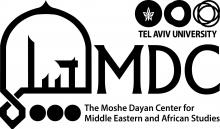Prof. Bruce Maddy-Weitzman writes in the "Journal of North African Studies" of the contemporary processes of globalization and how they have stimulated and reinforced a specific Berber/Amazigh ethno-political identity.
Contemporary processes of globalisation have stimulated and reinforced a specific Berber/Amazigh ethno-political identity. Overall, the Berberist discourse is profoundly sympathetic to Western liberal-humanist values, and strongly condemnatory of the predominant monocultural order based on Islam and Arabism. To be sure, globalisation's homogenising effects are seen as a threat to indigenous peoples' cultural identities, Berbers included. But, overall, modern Berber imagining is bound up with a secular, Western-modern vision of the future. Berber/Amazigh culturalists seek to accommodate larger outside forces while placing an explicit emphasis on the collective ‘self’, thus posing a challenge to the existing order in the Maghrib.
External reference








